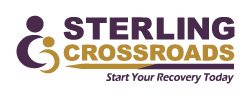
Sterling Crossroads provides outpatient addiction treatment programs in Mount Sterling, KY. We are dedicated to helping Kentuckians and our community find a better way forward without relying on drugs or alcohol. We’re not just here for our patients but their families as well. Find support now by calling 888.991.1476.
Will an Opioid Prescription Cause Addiction?
Addiction is a highly personal experience that stems from a combination of genetic factors, lived experiences, and other circumstances. If you are prescribed an opioid for medical purposes, there is no guarantee that you will become addicted to it.
However, without proper management, there is a chance you could experience addiction. When you take opioids, your brain and body will get used to them over time. As your tolerance starts to build, you’ll likely feel the need to increase your dose in order to feel the same effects since opioids don’t just relieve pain but provide a sense of calm and even euphoria. If you start misusing your prescription, addiction may not be far behind.
Recognizing Opioid Addiction
The addiction cycle causes someone living with it to crave the substances they’re hooked on at a cost to their personal health, their family, and every other aspect of their lives. If your loved one is struggling with opioid addiction, you might notice:
- Changes in behavior or mood
- Neglecting responsibilities, such as work or school
- Financial troubles from spending money on drugs instead of necessities
- Withdrawal symptoms when not using opioids
Withdrawing from is uncomfortable. It can cause symptoms like nausea, headache, anxiety, mood swings, sweating, and more. Relapse—returning to use of the drug—can curb these symptoms but can make them more intense the next time someone tries to quit. Addiction treatment offers tools and therapies to prevent relapse and stay sober longer.
Outpatient Opioid Addiction Treatment in Mount Sterling, KY
At Sterling Crossroads, our opioid addiction treatment is available for patients who are stable after withdrawing from opioids. We provide outpatient services, which means patients come to our center for therapy and medication-assisted treatment (MAT) during the day before returning home at night. Our comprehensive approach helps individuals get back on track after living with active addiction.
Medication-Assisted Treatment
FDA-approved medications like Suboxone, Vivitrol, and Sublocade are effective in managing opioid cravings. Cravings are one of the most challenging aspects of early recovery, and MAT makes it easier to stay on track. However, taking a pill alone is not enough; patients must also participate in behavioral therapy to address the underlying causes of their addiction.
Talk Therapy
Evidence-based behavioral therapy and group therapy address how addiction affects the mind. These therapies can help patients identify triggers for their substance use, develop coping mechanisms to manage cravings and emotions, and learn healthy ways of thinking and behaving.
Supportive Services
We know that opioid addiction treatment shouldn’t just address cravings. Sterling Crossroads provides Department of Corrections-approved parenting assessments and classes, drug assessments, and anger management courses that can be used to fulfill any legal obligations you may have while helping you learn how to move forward.
Relapse Prevention
Relapse is a normal part of recovery, but it’s not a failure. Learning how to recognize the signs of relapse, ask for help, and rely on your own personal strategies are essential to staying on track. Our compassionate team will help you make a plan to prevent relapse and support you through any challenges that may arise.

